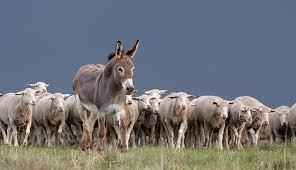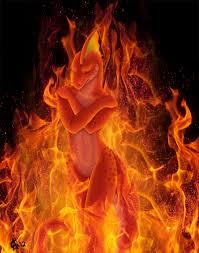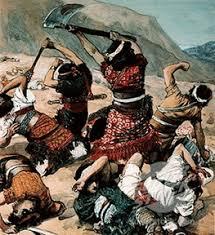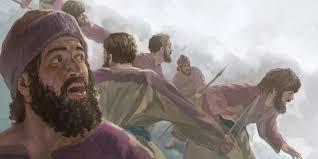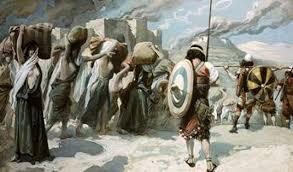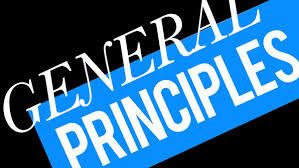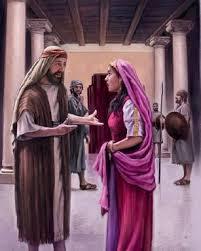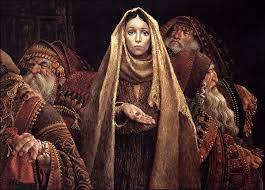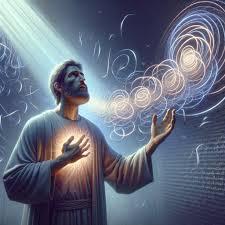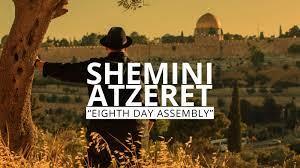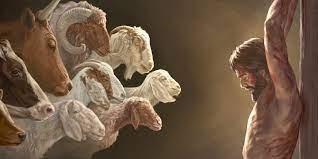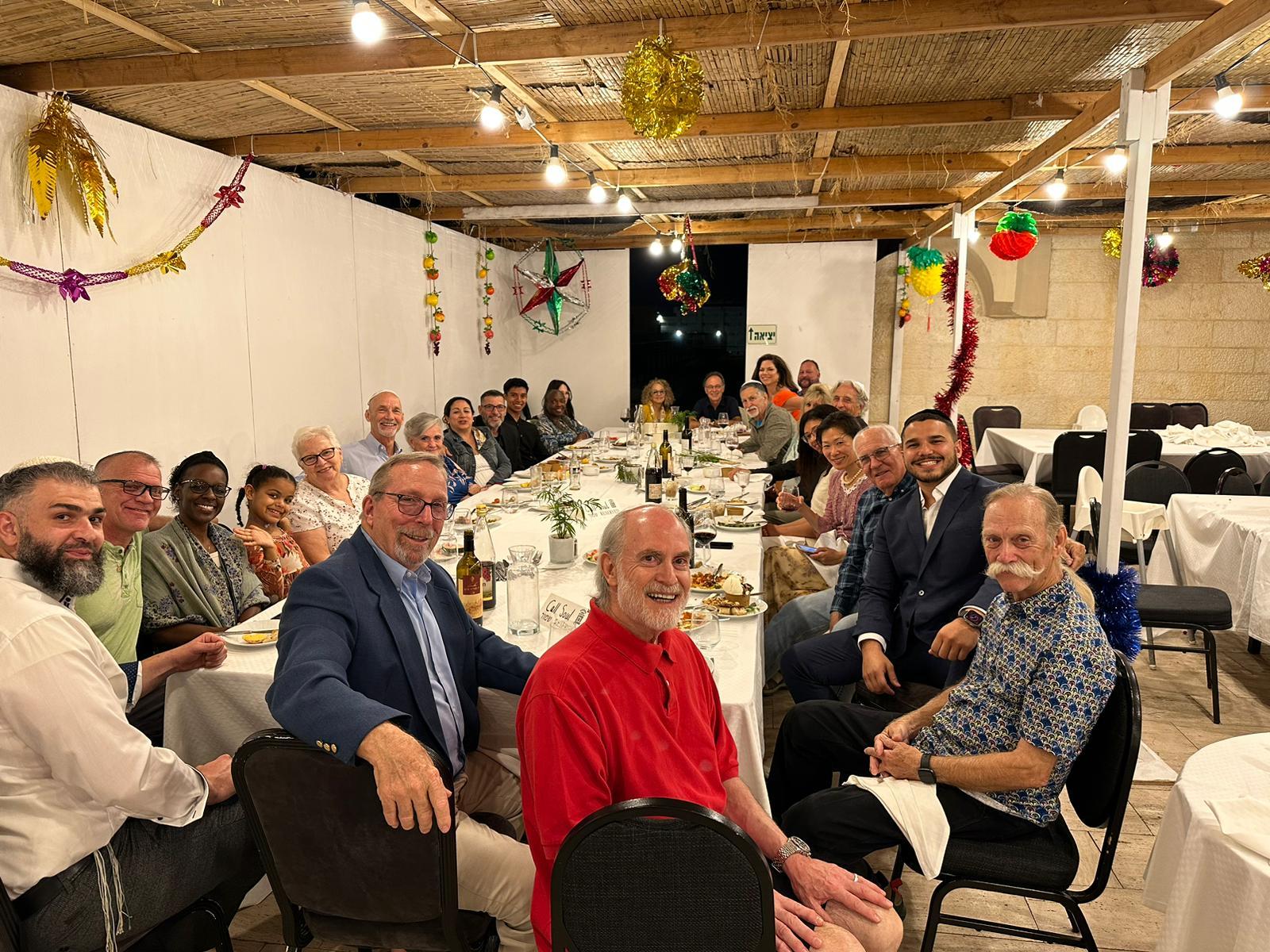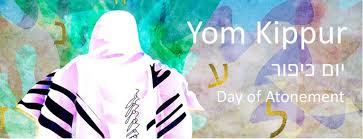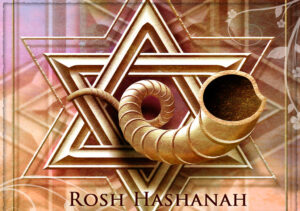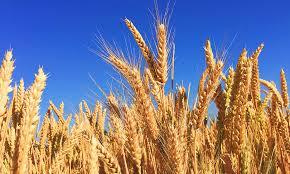Fw – The Spoils of War for the People 31: 42-47
The Spoils of War for the People
31: 42-47
The spoils of war for the people DIG: What lessons might God be trying to teach Isra’el by asking for one-fiftieth of the spoils of war? Why were the Levites and the priests given a share of the spoils of war? What was the key to the success and well-being of the Israelites?
REFLECT: Which do you think brings greater joy to the Lord and the giver: Giving by assessed quotas, or by voluntary donations? Why are both needed to run the congregations of God? How do you share your triumphs with God? What spoils do you give Him?
The Israelites captured a fantastic amount of spoil, a sign of God’s faithfulness to the Wilderness Generation and a foretaste of the conquest of Canaan that was yet to come.
This section begins with a statement of God’s miraculous care for Isra’el. ADONAI said to Moshe, “Take a count of all the spoils, both people and animals, you, Eleazar the high priest and the leaders from each of the twelve tribes.” The task must have been enormous, given the numbers involved. Divide the spoils into two parts: half for the experienced soldiers who went out to battle, and half for the rest of the people (to see link click Fu – The Division of the Spoils of War). From the half that goes to the people of Isra’el, you are to take one-fiftieth of the persons, and of the cattle, donkeys and sheep, that is, of all the livestock; and give them to the Levites taking care of the Tabernacle of ADONAI” (31:25-27 and 30). The priests (31:41) and the Levites, who by nature of their service to the Tabernacle and to the LORD, were not permitted to participate in combat, and thus would have otherwise not been able to benefit from the spoils of war.725
As noted previously in 31:7, 31, and 41, Moshe carried out his instructions faithfully as ADONAI commanded him (31:47b). This verse functions as a transitional mark between the giving of the instructions (verses 25-30) and the carrying out of each step of the process (verses 31-40), and the conclusion of the accounting and distribution for the priests (verse 41) and the conclusion of the accounting and distribution of that which was apportioned to the Levites from the people. Moshe faithfully followed the instructions from Ha’Shem regarding the counting and distribution of the spoils of war. Again, the principle of faithful obedience to the LORD was the key to success and well-being of the Israelite community.726
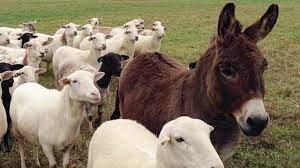
The abundance is shared proportionally with all the people, the priests, the Levites, and the service of the Tabernacle. From the half that went to the people of Isra’el, which Moshe separated from that of the men who had gone to fight – now the community’s half consisted of 337,500 sheep, 36,000 cattle, 30,500 donkeys and 16,000 young prepubescent girls taken as captives (see Fr – Holy War: ADONAI’s mercy). From the people of Isra’el’s half, Moses selected one out of every fifty persons and animals and gave them to the Levites, who were responsible for the care of the Tabernacle of ADONAI, as ADONAI commanded him (31:42-47a). Notice that all the numbers in the book of Numbers are even numbers with the exception in 3:43 where there were 22,273 first born Israelite men over twenty (see As – The Census and the Redemption of the Firstborn). Because the census was taken primarily for military purposes, it would naturally be arranged by hundreds, fifties, etc. This distribution of resources mirrors the distribution of the Land and its bounty amount the various tribes of Isra’el, which will be one of the central themes of the following chapters, Numbers 32-35.727
Dear Heavenly Father, praise You for being such a wonderful, faithful and generous God who guided the Israelites to victory over the Midianites, giving a massive amount of spoil to Your people. It is a joy to give back to You because You give so generously to me. In addition to the awesome gift of salvation (Romans 5:17), You give a loving relationship to me even while I am here on earth. When there are trials and problems, it is always a comfort to have someone there alongside to help and to guide, and You are the very best one to have right there with me when there is a problem. What a comfort it is to rest in the assurance that when I cry out to You asking for wisdom, You will answer and give the wisest and best path to take. But if any of you lacks wisdom, let him ask of God, who gives to all without hesitation and without reproach; and it will be given to him (James 1:5).
How generous you are to give such a wonderful relationship of being in your family, to those who believe/trust in You. But whoever did receive Him, those trusting in His name, to these He gave the right to become children of God (John 1:12) What joy in giving back to You, our wonderful, loving and powerful heavenly Father. Though life is busy, when we give You our time by meditating on Your Word and praising you – it is a great joy! We look forward to heaven when we will praise You forever! In Messiah Yeshua’s holy Name and power of His resurrection. Amen



